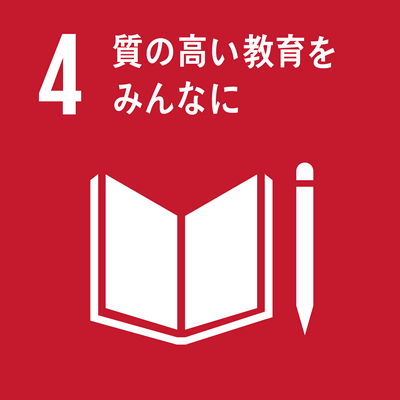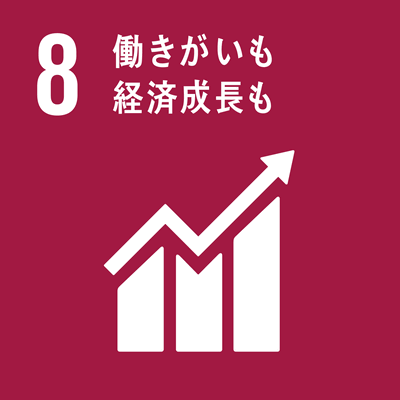シラバス表示
シラバスの詳細な内容を表示します。
→ 閉じる(シラバスの一覧にもどる)
科目の基本情報
| 開講年度 | 2024 年度 | |
|---|---|---|
| 開講区分 | 共通教育・教養基礎科目 | |
| 受講対象学生 |
学部(学士課程) : 1年次, 2年次, 3年次, 4年次, 5年次, 6年次 2023(令和5)年度以降入学者対象 この授業はTOEIC600点以上の学生に限られている。 This course is limited to students with a TOEIC score of 600 or higher. |
|
| 授業科目名 | 国際理解特殊講義4 | |
| こくさいりかいとくしゅこうぎよん | ||
| Lecture Course in International Understanding 4 | ||
| 授業テーマ | 仕事と国際理解 | |
| 単位数 | 2 単位 | |
| 受講対象学生 |
学部(学士課程) : 1年次, 2年次, 3年次, 4年次, 5年次, 6年次 2022(令和4)年度以前入学者対象 この授業はTOEIC600点以上の学生に限られている。 This course is limited to students with a TOEIC score of 600 or higher. |
|
| 授業科目名 | 国際理解特殊講義 | |
| こくさいりかいとくしゅこうぎ | ||
| Lecture Course in International Understanding | ||
| 授業テーマ | 仕事と国際理解 | |
| 単位数 | 2 単位 | |
| ナンバリングコード | gedu-libr-ILEC1146-001
|
|
| 開放科目 | 非開放科目 | |
| 分野 | 教育・公共, 社会・経済, 国際・外国語 | |
| 分類・領域 |
教養統合科目・国際理解・現代社会理解 (2022(令和4)年度〜2015(平成27)年度入学生対象) |
|
| 開講学期 |
前期 |
|
| 開講時間 |
木曜日 1, 2時限 |
|
| 授業形態 |
対面授業 * 状況により変更される可能性があるので定期的に確認して下さい
「オンライン授業」・・・オンライン会議ツール等を利用して実施する同時双方向型の授業 |
|
| 開講場所 | ||
| 担当教員 | サコラヴスキー ジェシー (全学共通教育センター) | |
| SOKOLOVSKY, Jesse (Center for General Education) | ||
| 実務経験のある教員 | 1. SOKOLOVSKY, Jesse 2. Former computer programmer, licensed high school teacher, junior high school teacher 3. The experiences from these past positions continue to influence my teaching style in the present. Computer programming taught me views of syntax as well as approaches to logical thinking. Experiences teaching outside the university have shown me not only how students in Japan are taught English, but also the strengths and weaknesses of these approaches. All of these experiences guide my own lesson plans, explanations, and methods for making lessons interactive and memorable. |
|
| SDGsの目標 |
|
|
| 連絡事項 | * 状況により変更される可能性があるので定期的に確認して下さい |
|
学修の目的と方法
| 授業の概要 | 英語で実施する授業科目 Work and Global Understanding This is a course about the connections between work, culture, and personal values, and how they affect people's real experiences. You will use English every week and improve your speaking, listening, reading, and writing skills. ------- Part 1: Our interests & work values What are you good at? What can you offer an employer? What do you need from a job in order to be happy? You will find your own personal values (i.e., what is actually important to you) and see how to find ‘flow’ in your work to improve experiences. You will build your confidence at communicating in English. Part 2: Issues in the workplace This part deals with various social issues and their relation to work, such as discrimination, death from overwork, and the advancement of AI. You will select a work-related topic of interest, read articles about it, and then lead group discussions on the topic. Part 3: Culture & work We will read the book The Culture Map by Erin Meyer. Through our discussions, you will understand more deeply how cultural differences affect real workplaces and human interactions. You will play an active role every week, not just sit and listen. The course includes group discussions, interviews, student-led research, and short lectures. |
|---|---|
| 学修の目的 | The main goal of the course is to understand the connections between work, culture, and personal values. Grasping these connections will provide you with context for understanding issues concerning work in modern society. It will also help you as consider your own future career. In the process of investigating, you will make discoveries, such as different interpretations of what is ‘normal’. You will see how 'normal' is constantly changing in our society, and you will gain a greater understanding of change in work environments. |
| 学修の到達目標 | By the end of this course, —you should have a deeper awareness of cultural influences on work and work values. —you should have a better understanding of fair and unfair labor practices, and the roles of employers, employees, and the government in creating work environments. —you should be particularly knowledgeable about a work- or culture-related topic which you have chosen to research. —you should have improved your English speaking, listening, reading, and writing skills. You should be more comfortable and competent at using English in group discussions of social issues. |
| ディプロマ・ポリシー |
|
| 成績評価方法と基準 | • 50% Weekly assignments • 20% Main written assignment • 20% Student-taught lesson • 10% Active participation in English in the classroom - The passing mark is 60%. - Full attendance and active participation in English are expected. You will lose points for being late, absent, or unprepared. |
| 授業の方法 | 講義 演習 |
| 授業の特徴 |
プレゼンテーション/ディベートを取り入れた授業 グループ学習の要素を加えた授業 Moodleを活用する授業 キャリア教育の要素を加えた授業 その他、能動的要素を加えた授業(ミニッツペーパー、シャトルカードなど) 教員と学生、学生相互のやり取りが、ほぼ英語で進められる授業 |
| 授業アンケート結果を受けての改善点 | |
| 教科書 | Materials will be distributed by the instructor. |
| 参考書 | Connected with course content: • Meyer, E. (2014). The culture map: Decoding how people think, lead, and get things done across cultures. PublicAffairs. • Mouer, R. & Kawanishi, H. (2005). A sociology of work in Japan. Cambridge University Press. • Terkel, S. (1974). Working: People talk about what they do all day and how they feel about what they do. Pantheon/Random House. Improving English language skills: • Murphy, R. (2015) English grammar in use book with answers and interactive ebook: Self-study reference and practice book for intermediate learners of English (4th Edition). Cambridge University Press. • McCarthy, M. & O'Dell, F. (2017). English collocations in use intermediate [or advanced] book with answers: How words work together for fluent and natural English (2nd Edition). Cambridge University Press. Additional resources will be given during the semester. |
| オフィスアワー | Thursdays, 14:00-15:00* Instructor's office No appointment required *Please contact me directly if you would like to arrange an appointment at a different time. |
| 受講要件 | (1) This class is designed for students with a TOEIC score of 600 or higher. (2) The course is intended for students who want to engage with challenging content actively and in English. Be ready to use English every week. |
| 予め履修が望ましい科目 | |
| 発展科目 | See the SIE Moodle site: https://moodle.mie-u.ac.jp/moodle35/course/view.php?id=16471 |
| その他 |
(1) This course is conducted entirely in English. We will create this all-English environment together by helping each other. You do not need to be a ‘master’ of perfect English. You do, however, need to make a commitment to using only English for the full 90 minutes every week. (2) If you have specific needs which could affect your experience in the class, such as a physical disability or a sensitivity to certain sounds, please tell the instructor during the first class session. I will do my best to accommodate your needs. (3) It will be helpful to have a dictionary available, either paper or electronic. Note that you may not use your phone during class except in emergencies, so it may not be used as a dictionary. 英語で実施する授業科目 旧科授業目名:国際理解特殊講義 |
授業計画
| MoodleのコースURL |
|---|
| キーワード | See English key words below. |
|---|---|
| Key Word(s) | Work-life balance, values, normal, change, culture, human rights, globalization, exploitation |
| 学修内容 | Session 1: Course introduction; work values S2: Skills, abilities, and personality traits; exploring their connections with work content, environments, and responsibilities S3: The concept of 'flow' S4: Real workplaces S5: Article 1 discussion S6: Article 2 discussion S7: Article 3 discussion S8: Culture and the Culture Map S9: Culture discussion 1 S10: Culture discussion 2 S11: Culture discussion 3 S12: Work in the news (international) S13: You're the expert, part 1 S14: You're the expert, part 2 S15: Final review The above schedule is provisional. Some adjustments may be made according to student needs and interests. |
| 事前・事後学修の内容 | There will be a variety of assignments outside of the classroom. Examples include, • An interview with a veteran in the workforce • Research of a culture/work-related topic of your choice; preparing a lesson on that topic • Reading news articles in English related to course content; preparing for discussions of those articles • Vocabulary review • English skill-building practice Complete the assignments on time so that you can participate in the related discussions which follow. All assignments are to be completed in English. |
| 事前学修の時間:120分/回 事後学修の時間:120分/回 |


